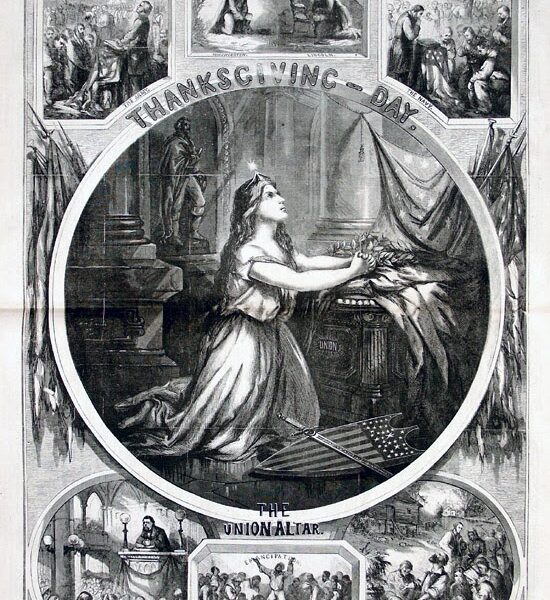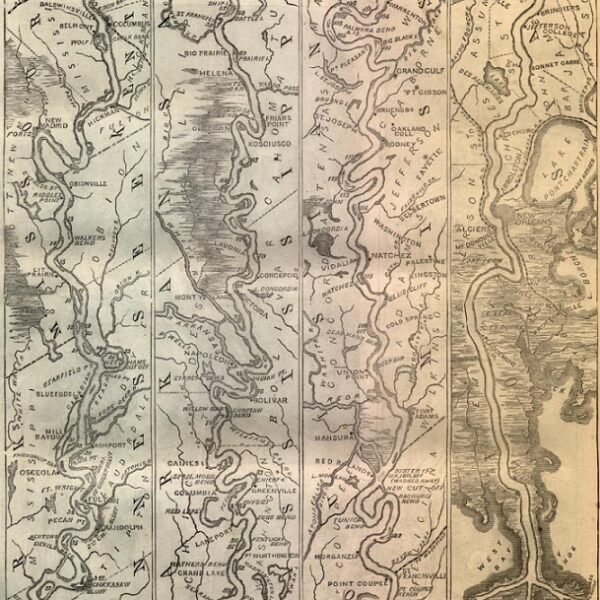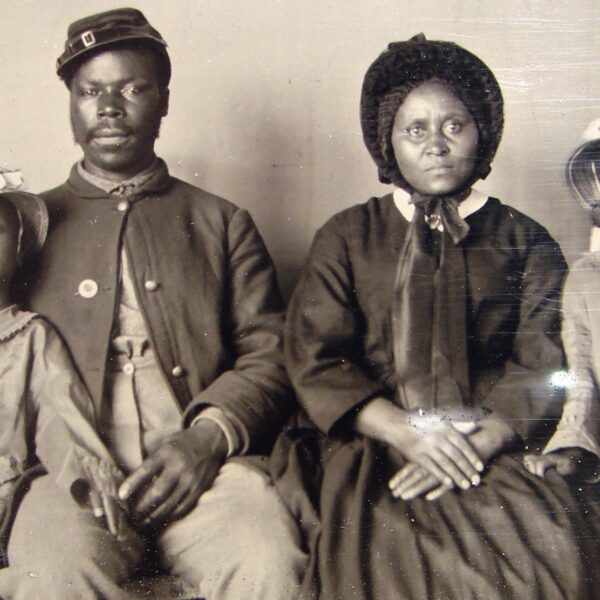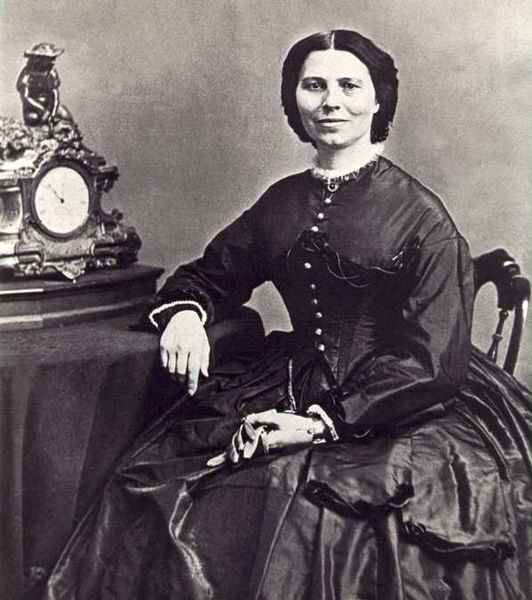
The Books & Authors section of our Winter 2020 issue contains our annual roundup of the year’s best Civil War titles. As usual, we enlisted the help of a handful of Civil War historians, avid readers all, and asked them to pick their two favorite books published in 2020. Below are their selections.
We also gave them a chance to name an additional title or two that they’re looking forward to, books that either were released this year or are coming out in print soon. You can find those in the issue. Brian Matthew JordanTop Pick: Thavolia Glymph’s The Women’s Fight: The Civil War’s Battles for Home, Freedom, and Nation (University of North Carolina Press) is a stunning and wide-ranging reassessment of women’s diverse experiences during the nation’s defining conflict. Recovering the long-neglected voices of poor southern and African-American women through deep archival research, Glymph weaves a more complete, more nuanced, and ultimately more human history of the war—and sprinkles it with interpretive gems. The author shows us how antebellum lives shaped wartime experiences, and how the war brought women together in new combinations. In seeking refuge from the Yankees, for example, southern slaveholding women came into close contact with poor women. Their competition for dwindling food, resources, and space raised troubling questions about the Confederate experiment. Glymph tallies the benevolent and relief work of northern women without the usual dose of sentimentalism or celebration. A gut-wrenching chapter on refugee camps recalls the particular path out of bondage for enslaved African-American women—one marked by withheld wages, sexualized violence, and attacks by Confederate guerrillas. The grinding toil of black women on behalf of the Union war effort has remained invisible too long. Scholars and general readers alike will be engaged by Glymph’s bold presentation of Civil War
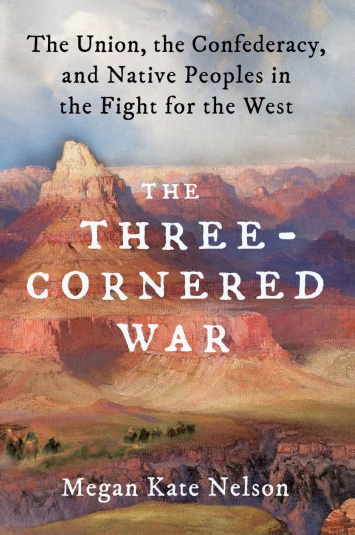
women’s history as much more than sewing circles, bandage rolling, and relief work. Honorable Mention: Megan Kate Nelson’s The Three-Cornered War: The Union, the Confederacy, and Native Peoples in the Fight for the West(Scribner) brings a whole theater of the war to life in vivid color. A memorable and diverse ensemble of protagonists propels this page turner and its broader view of the war’s spaces, environments, and chronologies. As the United States armies waged a war of liberation in the East, they waged a war of conquest against native peoples in the West.
BRIAN MATTHEW JORDAN IS ASSOCIATE PROFESSOR OF HISTORY AND CHAIR OF THE DEPARTMENT OF HISTORY AT SAM HOUSTON STATE UNIVERSITY. A FINALIST FOR THE 2016 PULITZER PRIZE IN HISTORY, HIS FORTHCOMING TITLE IS A THOUSAND MAY FALL: LIFE, DEATH, AND SURVIVAL IN THE UNION ARMY(LIVERIGHT/W.W. NORTON, 2021).
Jennifer M. Murray
Top Pick: Zachery Fry’s A Republic in the Ranks: Loyalty and Dissent in the Army of the Potomac (University of North Carolina Press) is an important book that provides a deeper, more nuanced understanding of the most politically volatile army in our nation’s history. Moving beyond the established interpretations that center on George McClellan’s influence in deepening political factions in the army, the prevalence of conservative Democrats in the officer corps, and President Lincoln’s meddling, Fry turns his lens toward the junior officers and rank and file to explore their emerging political awareness and activism. Fry traces the evolution of political sentiment in “McClellan’s Army” and explores how the army navigated different crisis points (such as the rise in copperhead sentiment in 1863). He chronicles that as the war went on—and under the prodding and fashioning of the politically aware and intensely motivated Republican junior officers—the rank and file completed
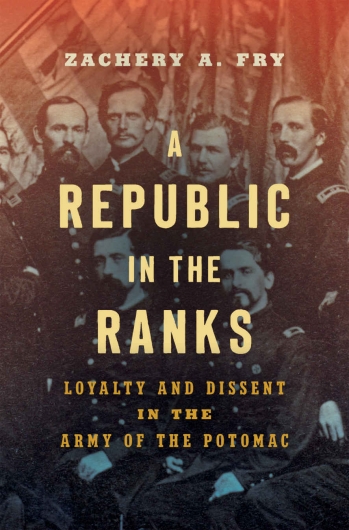
their political education. This “education,” and indeed the political transformation of the Army of the Potomac, culminated in the soldiers voting overwhelmingly for Lincoln, and not Little Mac, in the 1864 presidential election. A Republic in the Ranks is a refreshing look at the Army of the Potomac’s political culture and will be key to refining how we think of both civil-military relations and that republic in the ranks. Honorable Mention: If it seems at times that there is little new to explore about the war, Megan Kate Nelson’s The Three-Cornered Warreminds us there is plenty there if we shift our focus from Virginia and the eastern theater. Nelson tells the story of the Civil War in the West through the eyes of nine individuals diverse in gender, ethnicity, and profession. This perspective allows the reader to see how the war affected specific peoples, but also offers a better understanding of the complexity of the war in the West. Nelson’s fluid and vivid prose is a bonus to a compelling story. The Three-Cornered War is destined to stand not only as one of the best books of 2020, but also as a forceful reminder that the Civil War was more than a conflict between the North and South. It was a war that reached into the far corners of the American West and disrupted forever the worlds of many thousands of Indigenous peoples.
JENNIFER M. MURRAY IS A MILITARY HISTORIAN, WITH A SPECIALIZATION IN THE AMERICAN CIVIL WAR, IN THE DEPARTMENT OF HISTORY AT OKLAHOMA STATE UNIVERSITY. SHE IS THE AUTHOR OF ON A GREAT BATTLEFIELD: THE MAKING, MANAGEMENT, AND MEMORY OF GETTYSBURG NATIONAL MILITARY PARK, 1933-2013(2014) AND IS WORKING ON A BIOGRAPHY OF GEORGE GORDON MEADE, TENTATIVELY TITLED MEADE AT WAR.
Kevin M. Levin
Top Pick: This was a great year for Civil War books, and Brian Luskey’s Men Is Cheap: Exposing the Frauds of Free Labor in Civil War America (University of North Carolina Press) stands out as one of the best. Luskey
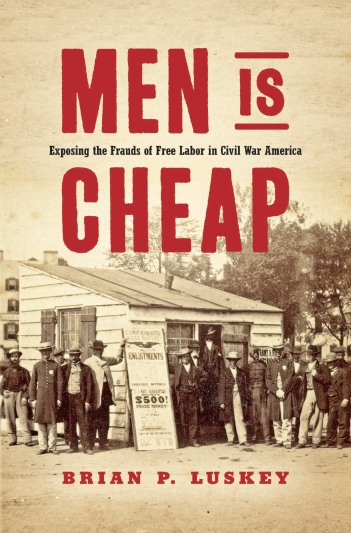
explores the underside of the wartime North’s free labor system. While many argued that wage labor made men free and ultimately contributed to Union victory, it also, according to Luskey, exposed many instances in which capital and labor were in conflict. Men Is Cheap tells the story of northern businessmen, military officers, employment agencies, and other middlemen who mobilized and often took advantage of vulnerable populations such as Irish immigrants, emancipated slaves, and even Confederate deserters. Brokers assisted drafted men in securing substitutes and in the process scammed people out of thousands of dollars in bounties. Soldiers like New Yorker Henry Walker fought to destroy the slaveholding class, but soon found himself considering the possibility of sending a freed slave home to alleviate the family’s economic troubles. Luskey demonstrates that a strong ideological commitment to Union on the part of northern entrepreneurs also encouraged a level of personal ambition that often resulted in the exploitation of others. The final chapter explores the role that the Freedmen’s Bureau played in helping emancipated slaves and former soldiers find work, which Luskey contends fueled a middle-class backlash that led to the end of Radical Reconstruction in the South. It’s hard to do justice to this book here. Do yourself a favor and read it.
Honorable Mention: For some decades now, historians have written extensively about the role of slavery in the formation and maintenance of the Confederacy. With Colossal Ambitions: Confederate Planning for a Post-Civil War World (University of Virginia Press), Adrian Brettle peels back layers of Lost Cause mythology to explore how Confederates imagined an independent slaveholding republic in a global context. Far from simply defending the institution of slavery, Brettle says, Confederates envisioned the expansion of their slaveholding republic throughout the western hemisphere. The author shows how military setbacks altered this postwar imperialist vision, but even late in the war, Confederates maintained that the institution of slavery was a strength and planters continued to anticipate a time when they might contribute to global prosperity. Ultimately, Colossal Ambitions is an important reminder of just what was at stake in this war.
KEVIN M. LEVIN IS A HISTORIAN AND EDUCATOR BASED IN BOSTON. HE IS THE AUTHOR OF NUMEROUS BOOKS AND ARTICLES, INCLUDING SEARCHING FOR BLACK CONFEDERATES: THE CIVIL WAR’S MOST PERSISTENT MYTH(2019). YOU CAN FIND HIM ONLINE AT CWMEMORY.COM.
Sarah Handley-Cousins
Top Pick: Megan Kate Nelson’s The Three-Cornered War is groundbreaking in a couple of ways. First, it challenges the primacy typically assigned the fields of Virginia, instead highlighting the importance of the Southwest, so often considered irrelevant to the “real” story of the Civil War. It also reminds us that the war was “three-cornered,” taking place not just between the Union and the Confederacy, but also with Native peoples, who recognized that the war was a contest that would decide the future of the entire
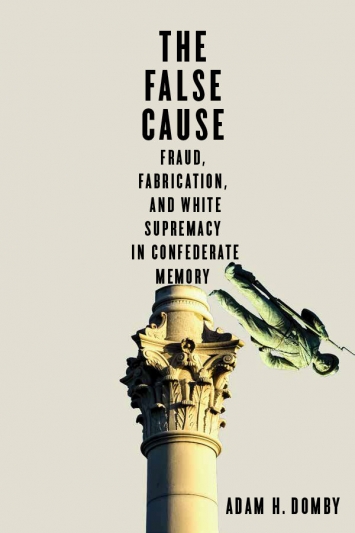
country, including the West. But I also love The Three-Cornered War because it’s wonderfully written, an example of what the best history writing can be.
Honorable Mention: I loved Adam Domby’s The False Cause: Fraud, Fabrication, and White Supremacy in Confederate Memory(University of Virginia Press). While the battle over Confederate monuments has been in the news continually for the past few years, I was amazed at how, after the killing of George Floyd, the renewed activism against symbols of the Lost Cause lined up with the re- lease of Domby’s work. He articulates a sharp message about the uses and misuses of history that I think has only become more important since this powerful book was published in February.
SARAH HANDLEY-COUSINS IS A CLINICAL ASSISTANT PROFESSOR OF HISTORY AND ASSOCIATE DIRECTOR OF THE CENTER FOR DISABILITY STUDIES AT THE UNIVERSITY AT BUFFALO. SHE IS THE AUTHOR OF BODIES IN BLUE: DISABILITY IN THE CIVIL WAR NORTHAND A PRODUCER OF DIG: A HISTORY PODCAST. SHE IS CURRENTLY RESEARCHING A BOOK ON DISABILITY, CRIME, AND VETERANS DURING THE GILDED AGE.
Gerald J. Prokopowicz
Top Pick: How the South Won the Civil War (Oxford University Press) by Heather Cox Richardson is the most important Civil War-related book published in 2020. At a time when the bedrock values and institutions of American democracy, including the validity of presidential elections, were being challenged more directly and openly than at any time since the Civil War, Richardson provides historical context and explanation for the almost continual spasms that were racking the body politic. Her argument that the Civil War represented only a temporary defeat for the concept of a white male oligarchy embodied in the Constitution does not provide much comfort, and many may disagree with it altogether, but in the book, as in her “Letters From an American” digital newsletter, she modeled a way to
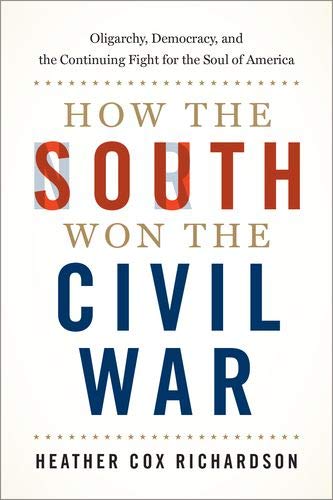
elevate public discourse by bringing historical insight to bear on contemporary events. There were many excellent books published in 2020 (by Megan Kate Nelson, Zachery Fry, and Judkin Browning and Tim Silver, just to name three) that I could have chosen, but the timeliness of Richardson’s topic tipped the balance.
Honorable Mention: Like my first choice, my runner-up is the right book for its time. Lincoln on the Verge: Thirteen Days to Washington(Simon & Schuster) by Ted Widmer describes Abraham Lincoln’s meandering cross-country journey from Springfield, Illinois, to Washington, D.C., in February 1861. The topic has been covered before, by Harold Holzer among others, but Widner’s version is propelled by a locomotive writing style that fits William Herndon’s description of Lincoln’s ambition: a “little engine that knew no rest.” Every reader knows how the story will end, but I found myself unable to resist turning the page and reading just one more chapter, to see how it would unfold in Widmer’s telling. In keeping the reader enthralled, Widmer advances the thesis that the trip was not a political misstep revealing Lincoln’s naivety, as it is often portrayed, but rather an opportunity for much of the northern public to meet Lincoln for the first time, and to see in him a confident, energetic, and principled leader who could restore their confidence in the fragile Republic that James Buchanan and his predecessors had done so little to maintain. While no new Lincoln emerged in 2020, just reading about what the original Abe accomplished in 1861 was a tonic for anyone looking for similar hope.

